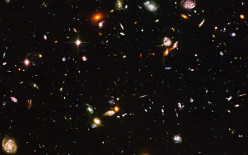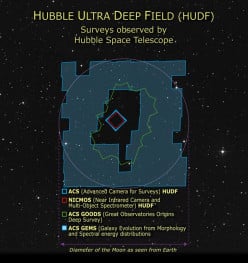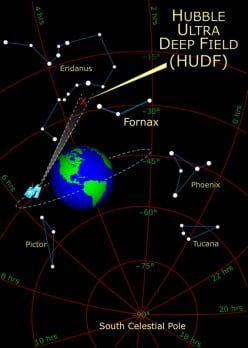Are we alone in the Universe?
I have always been fascinated with astrology and all the planets in our solar system, but in theory the planet Earth is just a needle in haystack.. There is so much explore, I believe we're not the only ones living on a planet. We need to explore outside our solar system to get proper answers but that won't happen in my life time and my gran children's. (I'm 28,lol)
Science will some day bear this out. Life exists only on the planet Earth. It requires evrything else in the physical realm to sustain it.
How can you know if you've never been outside the earth to see? How do we know there isn't another sun-like star somewhere supporting another planet out there when we haven't ever seen it?
Ego, the need to be the most special thing in all of creation. Being one of innumerable miraculous species across the cosmos is a bit to insignificant for some people it seems to me.
It always amazes me how some people can claim that only the planet Earth is livable. Given the vastness of the Universe, it is almost certain that life exists on billions of other planets.
Considering there's more suns in the cosmos than grains of sand on earth. Odds are we're not alone.
It has nothing to do with odds. The odds are this planet is the only one with life on it. The only other beings are in the spiritual realm.
You speak as if the world requires logic to operate. The sea, and the sky are not logical. Logic can only tell you that the sun will soon come up when you are in the throes of a lonely night. Logic has nothing to do with it. Enlightenment does.
Better turn your computer off if you don't want to be a complete hypocrite, your computer works because the world operates on logic that we have enough understanding of to invent computers. You should be praying or casting magic spells to try to connect to these forums if you really think that logic is so irrelevant.
Well said! Logic is a binary system, just like these overblown punch card boxes. Logic is a geometric configuration imposed over an organic universe. The substance of life overflows the height of the walls constructed by logic. Meanwhile, the corners of logic are never filled by the essence they are meant to contain.
If you have no logic, then you are not enlightened.
You are simply delusional.
In a sense, you're right. This is the same logic Douglas Adams used to declare the population of the Universe to be zero. Even though we know there are many trillion trillions of living things on this planet, our finite population divided by an infinite number of worlds is so close to zero it may as well be zero.
In another more accurate sense, you're wrong. There are billions of galaxies in the observable Universe. There are an estimated 200-400 billion stars in our galaxy, and at least that many planets. As many as ten billion could be habitable as we know it - rocky, medium-sized, and close enough to their star to sustain liquid water. There could be many more that are habitable as we don't know it - able to sustain life of a radically different biochemistry.
To declare that not a single self-replicating prion exists on any of those billions of billions of planets is pretty bold. Particularly if you have no evidence to back it up. I'm going to side with the optimists on this one. We know that the basic ingredients of life - hydrogen, carbon, oxygen, and nitrogen - are the most abundant elements in the Universe. We've found amino acids in meteorites and seen organic compounds in distant nebulae. The stuff of life is everywhere.
I think we're going to find evidence of life soon - and much closer than we think. Some of Saturn's moons look promising, especially Titan. Jupiter's moons are also potential candidates. There might be some extremophiles beneath the Martian soil or in the atmosphere of Venus. It may well be that the majority of life in the universe evolved in very hot or cold climates, and that we are the extremophiles.
I'm assuming you mean "astronomy"?
Scientists are doing just that and have recorded hundreds of potential planets in other systems that are very good candidates for supporting life.
If those planets formed life in a similar fashion as earth, we may very well observe dinosaurs in their natural habitats, as an example.
I think life is probably abundant in the universe, the challenge is, how to escape our planet and travel to it? It might not really be possible with the immense time it would take to travel as well as the hostile nature of space to life like ours (adapted to the environment of a planet, not the vacuums of space). What ever is out there right now, by the time we get to them they may well be gone already, may be that what we would find isn't actually there yet (as of now).
- rickyliceaposted 13 years ago
0
Probably not, but until we find evidence to the contrary, we can't assume that extraterrestrial life exists.
It is silly to think life doesn't exist elsewhere. To think that millions of species of animals and plants could exist on one planet, but nowhere else in the universe? Come on.
I think it is akin to believing the Earth is the center of the universe. Mankind's technology evolves faster than their reason and logic.
Eternally HumanI for one, do not think we on this planet are the only living beings in the vast universe.

"Are we alone in the Universe?"
Nah, we're just being ignored.It would be silly to assume as much. Just imagine all of the life on our own planet we have yet to discover. Also, we are discovering different life forms that live in environments that we used to deem as uninhabitable.
I think you're right. We may not be the only ones who live on a planet. We see a bunch of movies about other galaxies and planets, who knows - it might be true! Wouldn't it be cool if indeed there's something like an "alien airport" like the one from MIB and that there are really extra terrestrials that walk among us disguised as humans?

The universe has billions of stars, many parts earth humans have yet (or will never) discover,
planets light years away, some with water, heat, and similar terrain.
But in our lifetime I doubt we will see it. I do think some better answers can be gotten from ultra-top clearance ex-military officials who participated in those programs.Udontnomi
Clearly a poet, clearly a naturalists. I understand your approach to all of this, not that I agree with it. Spirituality, despite your misconceptions is used as a means to percieve universal objective truth. To what extent the experience is truely objective will never be certain. However what is certain is the arrogance with which some people claim perceptive authority, particularly when it dismisses logic of all thingsI would be utterly amazed to learn that there is only life on Earth. Has anyone ever heard of Hubble's Ultra Deep Field Space image? NASA pointed Hubble to what appeared to be a dark stretch of space and basically took a very long exposure, 30 days long.
What they found was quite amazing in my opinion. They found galaxies about 14 billion years old dating back almost to the big bang. These were the very first galaxies to ever form. You can tell by looking at them that they are baby galaxies because they don't have the well formed spiral shape that is typical of what we see throughout most of the universe. The number of galaxies within such a small, dark section of the visible night sky is astronomical. Were talking a space the size of holding a dime up at arms length, 1/10 the size of our moon. See actual pictures below. Note this picture is less than half the original picture, it's cropped to use as my wallpaper.
I think the current estimation is that there are about 100 billion galaxies in the known universe with each galaxy containing about 100 billion stars. So our own star is only one of about 1.e+22 other stars. That's 10,000,000,000,000,000,000,000 stars!!! Of course this number keeps increasing occasionally as our technology advances and allows us to see even more. Odds are very high other goldilock planet exist in my opinion. To think we are alone is very naive....
Practically everything you see in this picture is a galaxy.
The small square is the section of the sky HUDF survey came from compared to the size of the moon.
Well, considering Voyager 1 has just neared the helios of this solar system, eleven billion miles from earth. Thirty five years does not seem long, but given the next star-solar system approach is 40,000 years away -only passing within like twenty trillion miles- not even out of the Milky Way Galaxy, highly doubt humans will make it beyond this solar system before the year 10,000 Common Era.
And maybe that's a good thing. Maybe that's the point of the massiveness of the universe.
Humans would need a technology equal to that of a star to power out of this place and into the great unknown. That is a lot of power. 40,000 years is a long time in the Next Stop on the Tour d' Space. Sadly, Voyager 1 will pass out of the sheath and begin shut down by 2015, just 2.5 years from now.
In the 25k-250k years of human existence, evolutionary view, we have just now, in the last 100 years, advanced in technology enough to reach the edge of the solar system -just this wee bit of space- like walking from your front door to the curb. And not even us, a machine!! At the same time, we have advanced to the edge of natural destruction. No evidence of slowing down either and no evidence of other life forms, machines visiting this planet.
So by scientific practicality, yes, we are isolated, alone. By speculation {esoteric} we are not alone.
JamesI really cannot understand how anyone thinks only this planet is inhabited! All environments here sustain life, and considering the mind-blowing number of planets out there to think that only this one we happen to be on is the only one with life makes no sense at all to me!
One thing people must keep in my mind is that despite the immense size of galaxies and the large number of them out there, life as we know it cannot exist in the entire galaxy if the black hole at it center is too active or in areas near the center of galaxies. If the black hole is releasing extremely high levels of gamma rays and x-rays that is permeating almost the entire galaxy there would be no planets in them to support life because of these radiations from the black hole.
Our galaxy on the other hand, has a black hole that is quiet with respect to some black holes in other galaxies which is another reason why there is life on Earth. However as we approach the center of the galaxy the environment become more dangerous and violent for life to exist there. Therefore, there is probably no life near the center of the galaxies. If there is any it would be near the edge of the galaxy in a location similar to where we are located in our own galaxy. This natural phenomena eliminates millions if billions of planets in each galaxy of supporting life. Also, some galaxies are simply too violent to have stars that are very stable to have planets around them for life to exist on them because the black hole is very large and devouring stars at a very rapid rate for a stable environment to exist for life.
In other words, there are millions of galaxies out there also that probably do not have stars and planets in an environment to support life. Again, we are in the right galaxy and in the right place in our galaxy for us to exist. We still have not found any evidence of life on any of the other planets and moons in our own solar system despite the fact that they are revolving around the same star that we are revolving around. The other planets are simply not in the right locations to produce the idea conditions for life as we know it to exist. That alone tells me life is not as prevalent in the universe as some people it would believe it to be based on the large number of galaxies out there. It take more than mere numbers of galaxies, stars, and planets for life to exist. The right combination of conditions must exist for life to exist.Its very possible that we're the most intelligent life forms in the universe. Its not likely we're the only life form though.
cctvsam, I agree with your statement. If there is life elsewhere in the universe there is a high probability that this life is on the same order as that of the microorganisms here on earth because the conditions are probably most favorable for organisms at this level in most of the universe. Also it take time for intelligence to evolve, in our case about 4 billion years. The star must be around for quite a while for intelligence to evolve and there are many stars out there that do not last long for that to happen; let alone the planet must be in the idea position from the star for the organism to survive long enough to develop intelligence.
Related Discussions
- 14
Is there life on other planets? What do you think?
by DaniellaWood 14 years ago
Is there life on other planets? What do you think?Scientific descoveries suggest that some planets are too hot or too cold for life and that others have no water and so on. But surely humans and animals canNOT be the only living creatures in the whole of the solar system...some even claim to...
- 11
Why have we found no life on other planets?
by Daffy Duck 14 years ago
There are millions of other worlds in countless star systems in thousands of galaxies yet we have found no life yet....Why? Is it because there is no other life in the universe? Is it because there use to be thousands and millions of years ago, but no longer? Is it because there...
- 38
Is Their Life on Other Planets?
by lesliebyars 12 years ago
Many scientists believe their is life on other planets. Not on Mars or Venus but in the next Solar System. What do you think and should NASA take this issue seriously?
- 30
Do you believe that there is life on other planets besides Earth and what makes
by Rodric Anthony Johnson 13 years ago
Do you believe that there is life on other planets besides Earth and what makes you think so.There are so many schools of thought (religious and secular) about life on earth and other planets. Are we alone in the universe or did life sprang into being elsewhere? Did God only have enough time for...
- 15
Do you think aliens are real? Why?
by Reptarking17 14 years ago
Do you think aliens are real? Why?
- 16
Do you think that humans will one day inhabit another planet? And if so, which
by PR Morgan 10 years ago
Do you think that humans will one day inhabit another planet? And if so, which one?

























